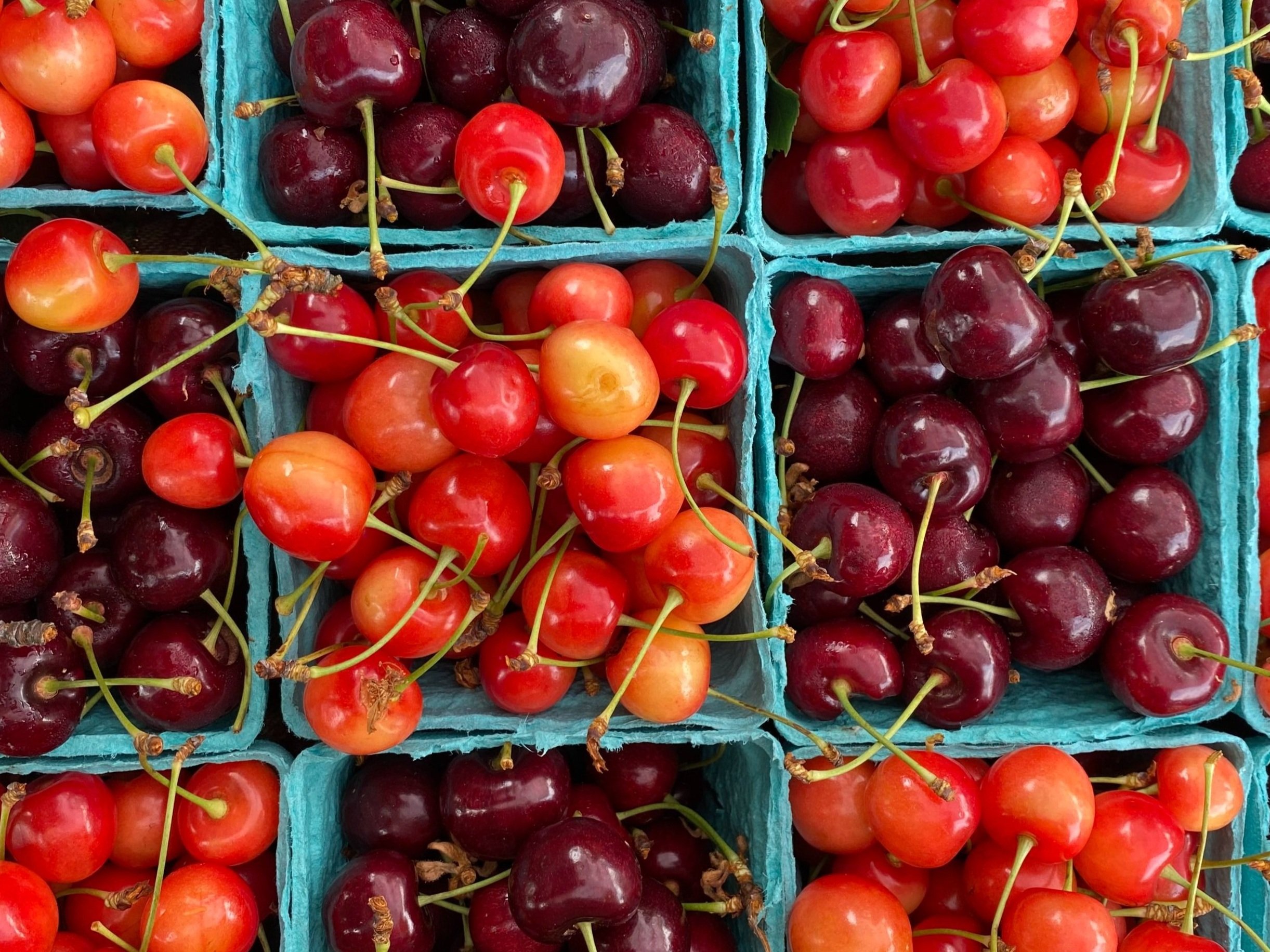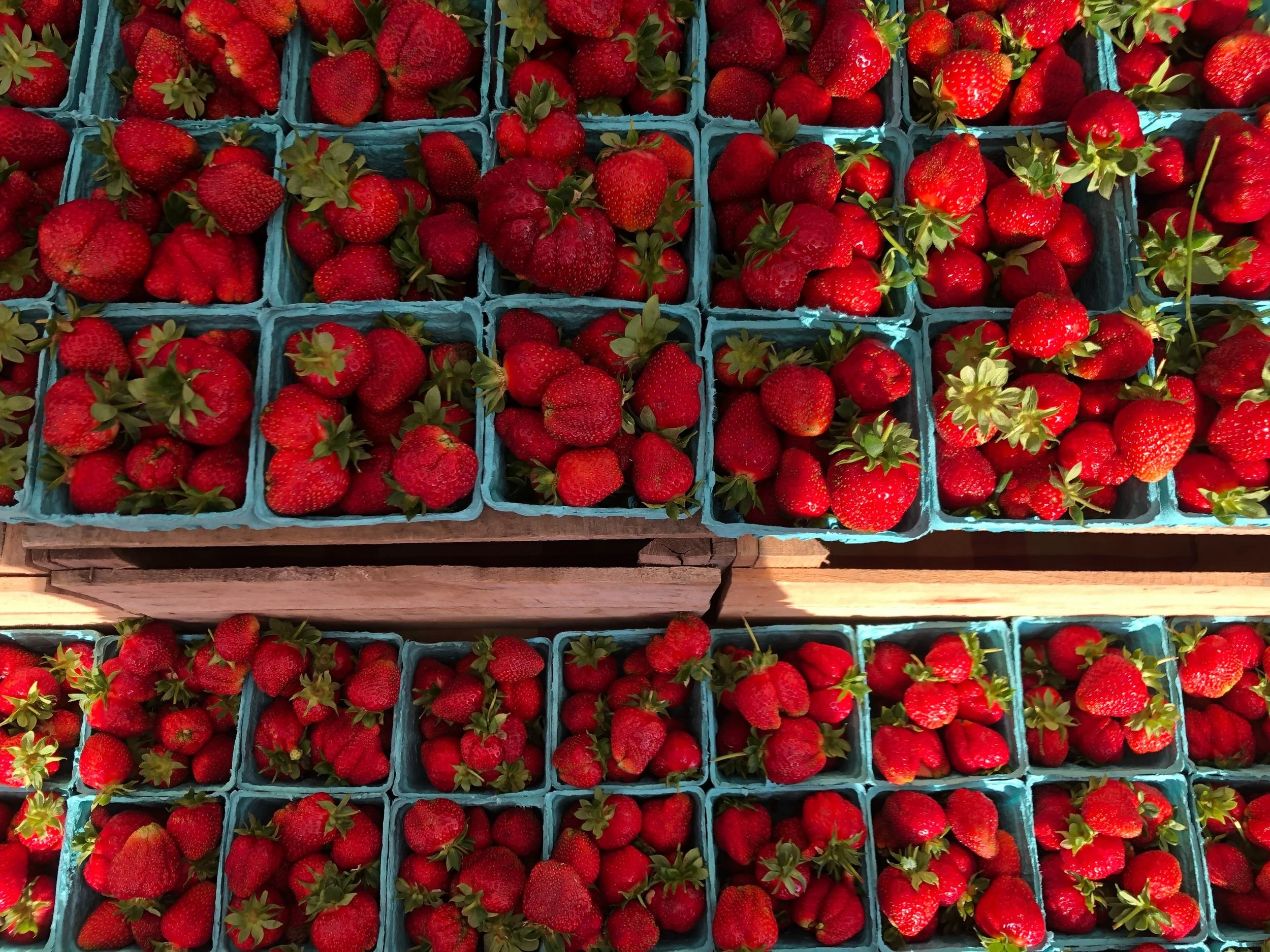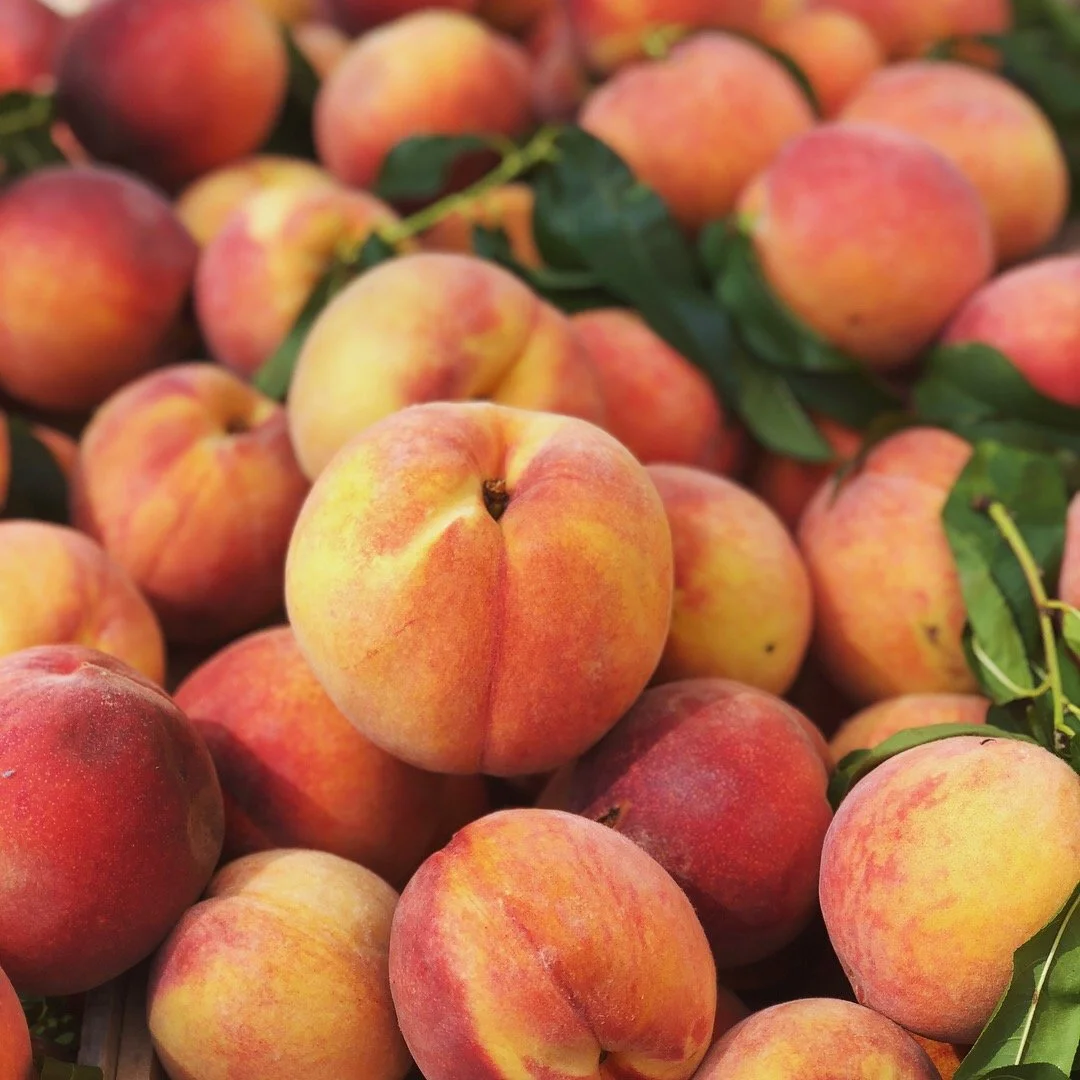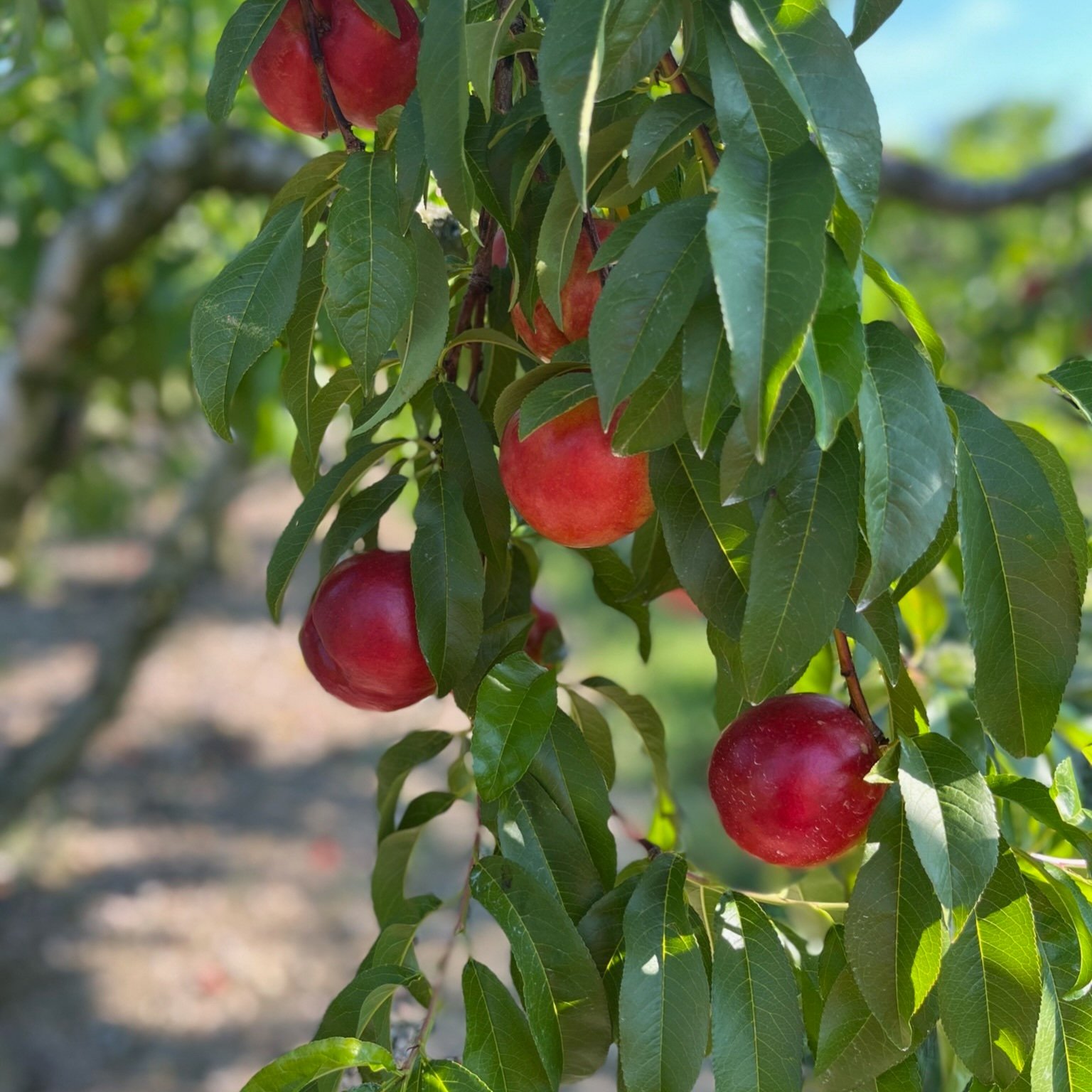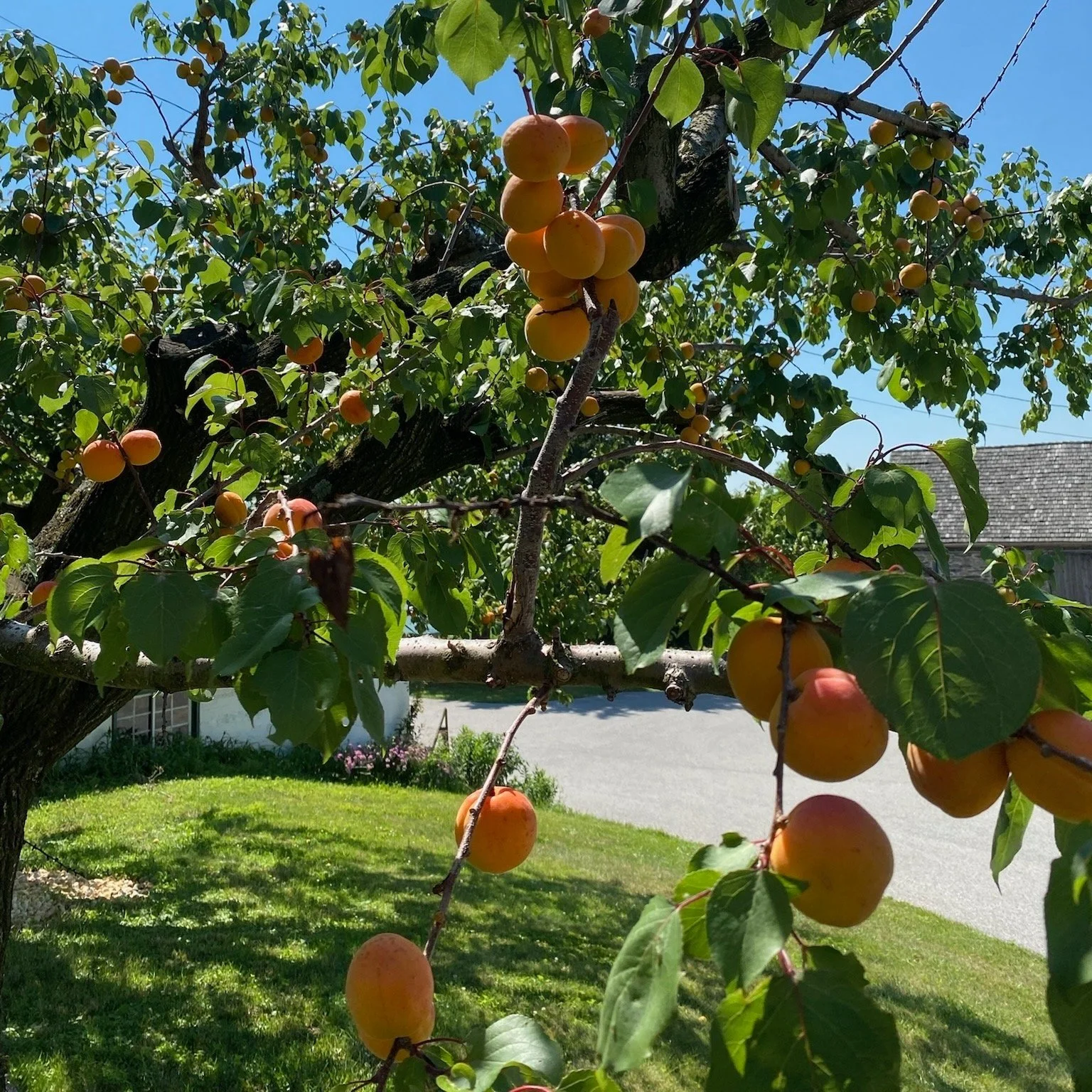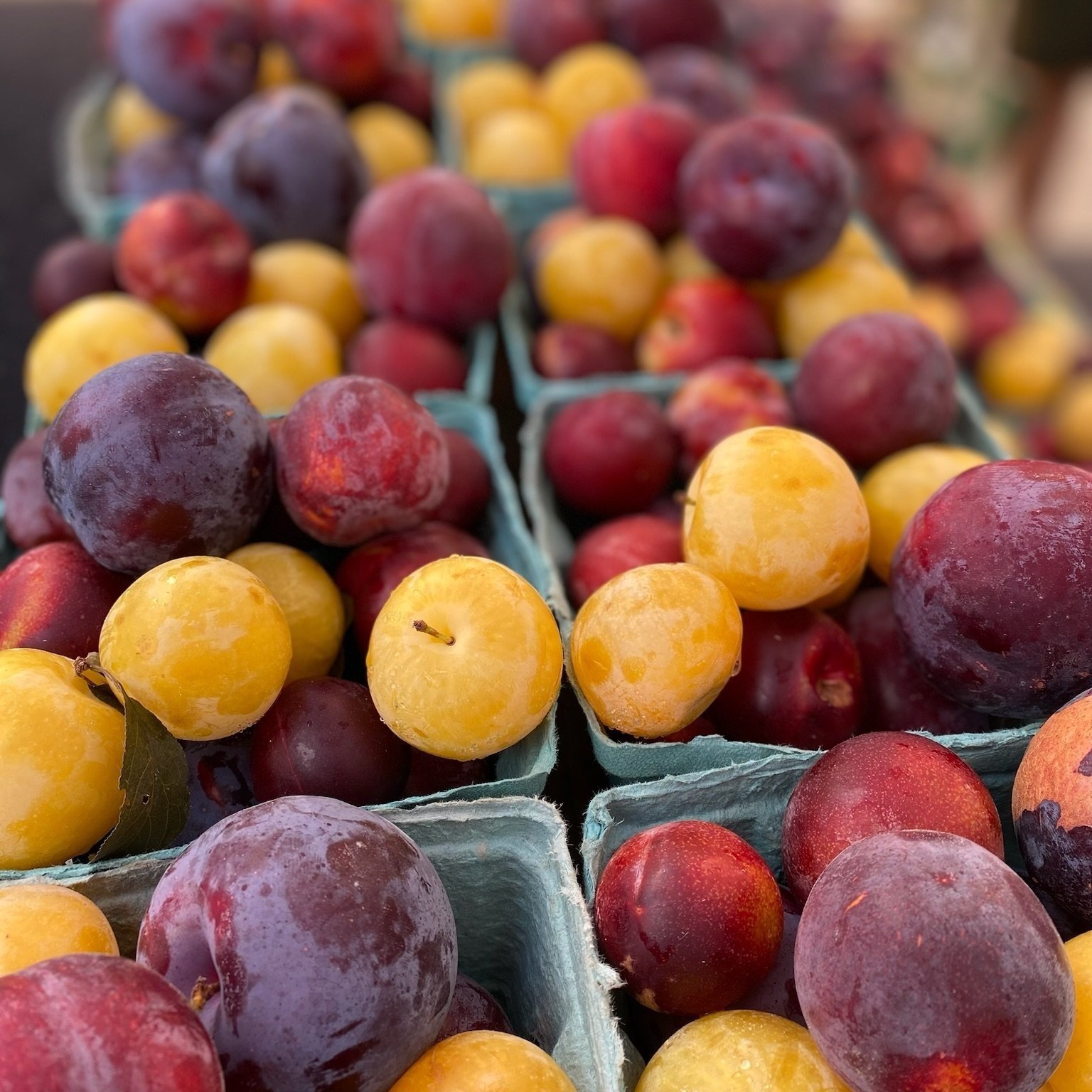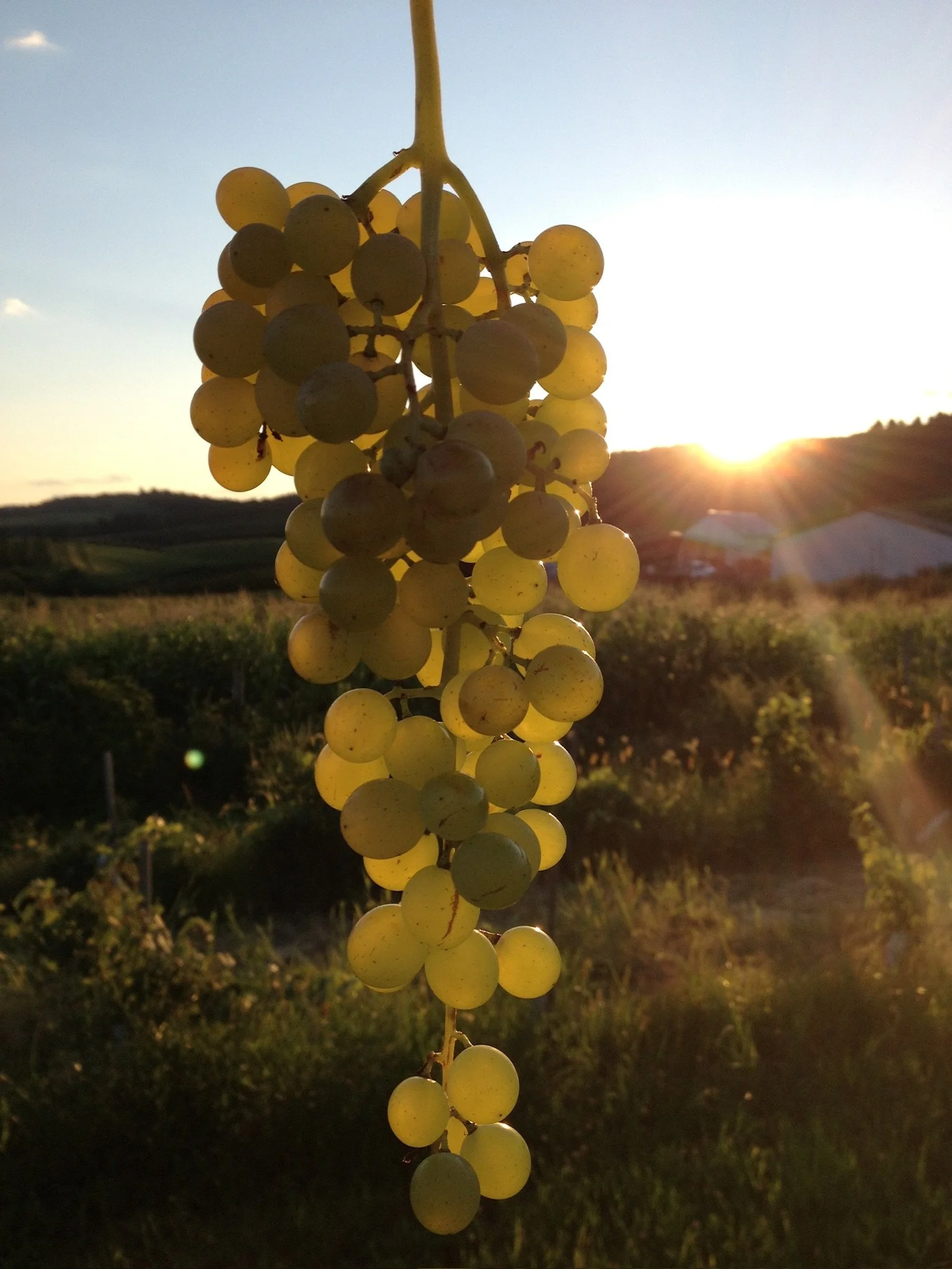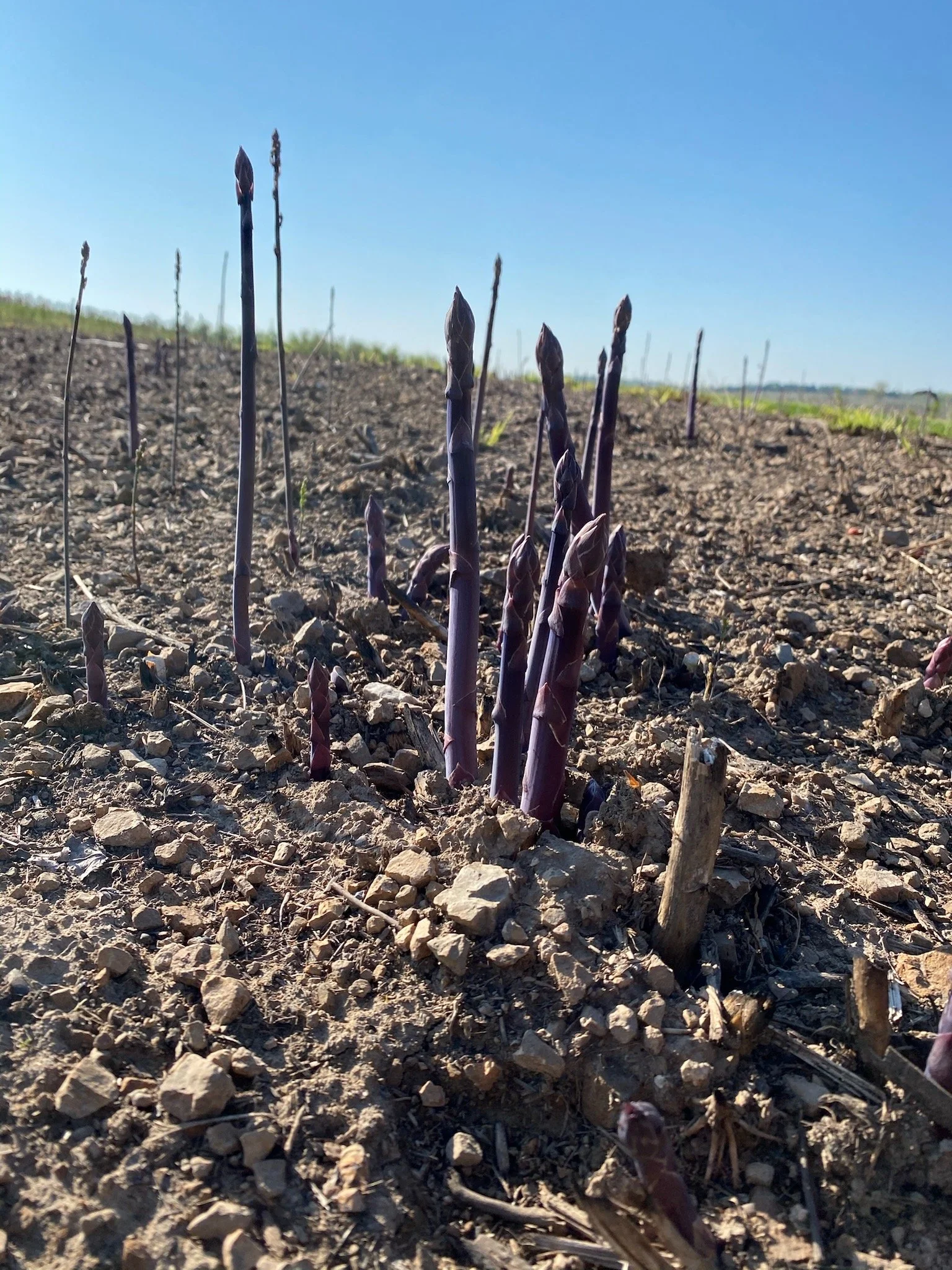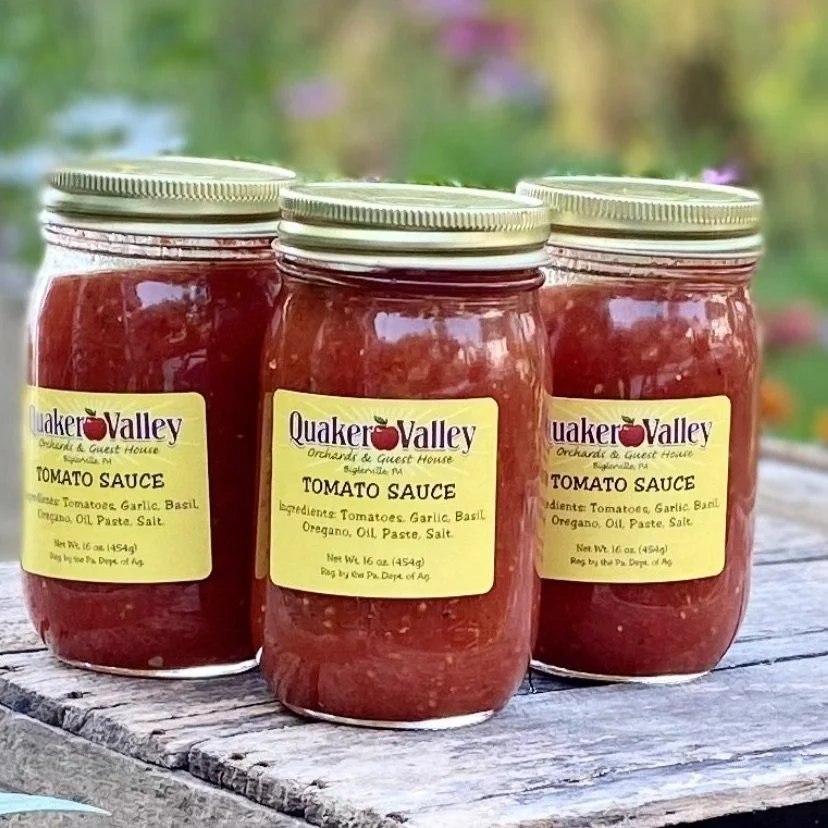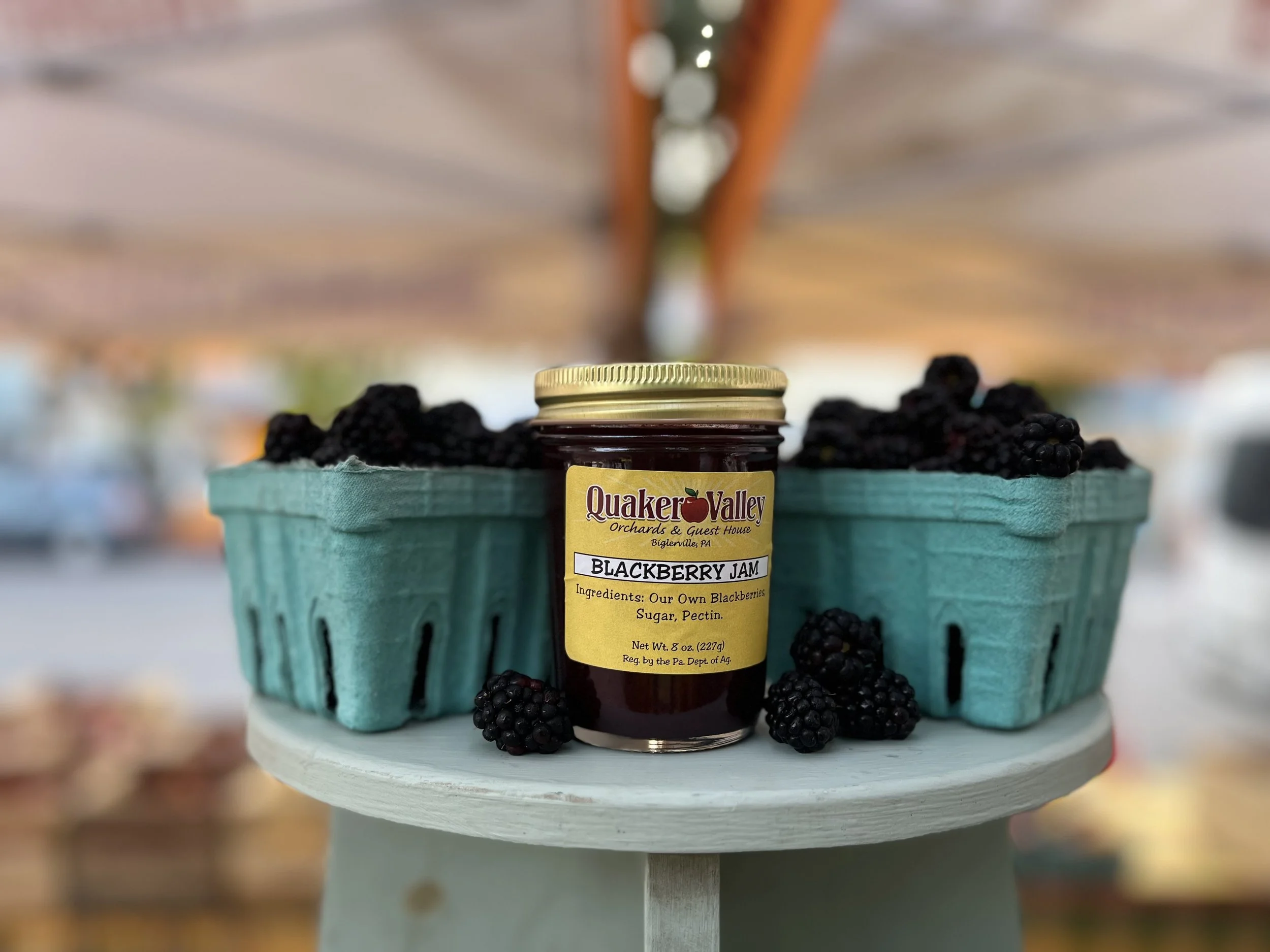We are proud to offer you fresh, delicious, and local produce!
These dates are all based on our best guess, Mother Nature has the final say!
APPLES
Available July thru May – Harvested July thru November
Our first apples to ripen are the heirloom Transparent in mid-July, with our most popular, Honeycrisp in early August. We end the apple harvest with our Pink Ladies in November.
We are able to continue to sell apples for several more months because some varieties are excellent keepers! Our personal favorite are the Ever Crisp, Gold Rush, and Pink Lady
Home storage of apples:
The best place to keep your apples is in the refrigerator in a plastic bag. This keeps your refrigerator from dehydrating your fruit. An apple ripens six to ten times faster at room temperature than if they were refrigerated.
Making a pie, you will need approximately 2 pounds or 6 to 8 medium apples for a 9-inch pie, double for a deep-dish pie.
BERRIES AND CHERRIES
Available beginning May until frost.
Strawberries — Begin ripening in May and usually last until July.
Sweet Cherries — Come next in mid-June and tart cherries soon after.
Red Raspberries — Begin in late June and continue to September, sometimes October.
Black Raspberries — They only last a short time, usually ripening toward the end of June.
Blueberries — Usually begin in late June also, lasting into July.
Blackberries — Big and juicy ripen in July and end in early September. We are planting new ever-bearing blackberries this year, with the hope of extending our season.
Storage of Berries:
Berries and cherries store best in the refrigerator. Do not rinse or clean them until you are ready to eat them.
Freezing berries and cherries is also very easy. [raspberries]
For strawberries and cherries, wash the fruit remove strawberry tops and cherry pits then place on a single layer on a cookie sheet and place in the freezer. Once frozen remove and place in freezer bags.
For blueberries, raspberries and blackberries, do not rinse first. Freeze on a cookie sheet then place in bag once frozen. You may rinse when you are ready to use the fruit.
PEACHES AND NECTARINES
Available July, August and September. We have several varieties of peaches and nectarines.
Yellow peaches — Begin ripening in early July and we continue to harvest into September.
White peaches and nectarines — Follow closely behind and continue thru August. The white-flesh tend to be less acidic and taste sweeter.
Donut peaches — Arrive in late July and August. They are an heirloom variety originating from China. These are one of our most popular varieties. They have white flesh, tend to be less acidic like our white peaches and are juicy. Donuts also have less fuzz and when fully ripe the seed can be pushed out of the middle for a donut-like snack.
How do you tell when a peach is ripe? Look for a yellow ground color with medium-soft flesh and that it smells like a peach. Let your peach soften on the counter or you can place in a brown paper bag to hasten the process. Don’t refrigerate until they are fully ripe and don’t keep them in the refrigerator for more than a day or two. Peaches and nectarines lose juice and flavor if they’re refrigerated too long.
Freezing peaches and nectarines:
It's very easy and taste great in cobblers and smoothies over the winter months. Place ripe fruit in a pan of boiling water for about 30 seconds then remove and immediately plunge into a bowl of ice water. The skins will slip off. Place in freezer bag and freeze.
APRICOTS
Late June and July
PLUMS
July and August
GRAPES
Available August, September and October.
We have several sweet seedless table grape varieties in white and purple and traditional seeded Concord, Niagara, and Muscadine varieties.
PEARS
Harvested in August and September. Available August thru December
We grow several varieties of Asian pears, red and green Bartlett, and Bosc.
ASPARAGUS
Available mid-April into May.
SWEET CORN
Available July, August and September.
POTATOES AND SWEET ONIONS
Available June thru December.
WINTER SQUASH AND PUMPKINS
Available September thru December.
Other Offerings
HONEY
Our honey is available throughout the season and is from the several hives located on our farm. The bees aid in the pollination of all our fruits, vegetables, and flowers.
HONEY CRISP APPLESAUCE
Our applesauce is made with our fresh Honey Crisp apples which are peeled and cooked with our own cider. We have 3 varieties available: no sugar added, spiced without sugar (cinnamon sauce), and apple apricot (our personal favorite)!
TOMATO SAUCE
All our tomato sauce sold at market is made on the farm, in our kitchen, with our own tomatoes. Fredi makes the sauce in small batches and preserves it using a pressure canner. We enjoy it all winter long.
FRUIT JAMS
All our fruit jam is also made in small batches by Fredi with our own fruit in a variety of flavors.
CIDER
Available September thru April.
Our cider is processed and pasteurized at our local cider mill. We use a blend of about 7 kinds of apples to get that delicious flavor.
APPLE BUTTER
Choose from traditional Sugar and Spice, Sweetened with Honey, Spiced without Sugar or No Sugar Added. All are a delicious, guilt free treat on toast or bread, with yogurt, cottage cheese, or Ice Cream.
POPCORN
Harvested in the fall and sold in the winter months. It pops best when very dry.
Our popcorn is a very popular snack with young and old alike! People are always amazed at simply popping it in a paper bag!
How is our produce grown?
There is a lot of confusion with so many methods in practice today.
At Quaker Valley Orchards we use the Integrated Pest Management (IPM) System for our tree fruit production. This includes taking several measures prior to spraying to reduce harmful pests commonly found in the orchard. We do this by keeping our orchards mowed and clean. With Pennsylvania weather being so seasonable and varied year to year, it is very difficult to grow strictly organic and still have fruit to bring to market to support our family and farm.
Recently, we have been using a mating disruption program for the harmful tree fruit moths with much success. This involves placing a card with pheromones in each tree in the orchard. These cause disruption with moth mating and prevent them from laying eggs in the fruit. By using these and releasing beneficial insects in the orchard, we have seen a reduction in our pest population. Ultimately this allows us to spray less, using softer (often organic) chemicals in lower doses and only when it is absolutely necessary. This is where we raise our family. We want our food to be as safe as possible. Winn and Fredi are continually searching for improved, safer ways to grow our produce for you and us.
Why buy local?
Local produce has a smaller carbon footprint as compared to grocery store produce due to its reduced distance from farm to plate.
Locally grown food tastes better because it can be picked at a riper stage because it takes less time to reach the consumer.
Buying local supports your local farmer and puts money into your local economy.
Buying direct at market allows us to directly interact with our customers. This helps us to better share our growing practices, help determine what produce we should grow, and build a genuine connection with our customer base.


